Publications
-
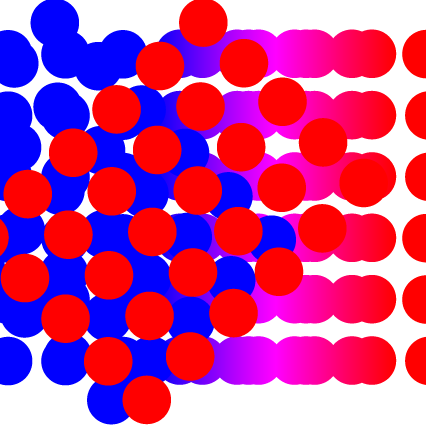 “Wildekeit” und Widerspruch. Poetik der Diskrepanz bei Konrad von Würzburg
“Wildekeit” und Widerspruch. Poetik der Diskrepanz bei Konrad von Würzburg
-
 Antagonisten im höfischen Roman? Eine Skizze
Antagonisten im höfischen Roman? Eine SkizzeThis contribution (re-)examines the description and multiple functions of selected antagonists in courtly romance around 1200. Excepting romance of antiquity, one rarely encounters equal opponents who represent a contrary system of values and continue to take consequent action against the hero until the end. The texts are centered on their protagonists, lacking an equal narrative counterpart. Hence, the applicability of the concept ‘antagonist’ might be called into question for Arthurian, grail, and Tristan romance.
-
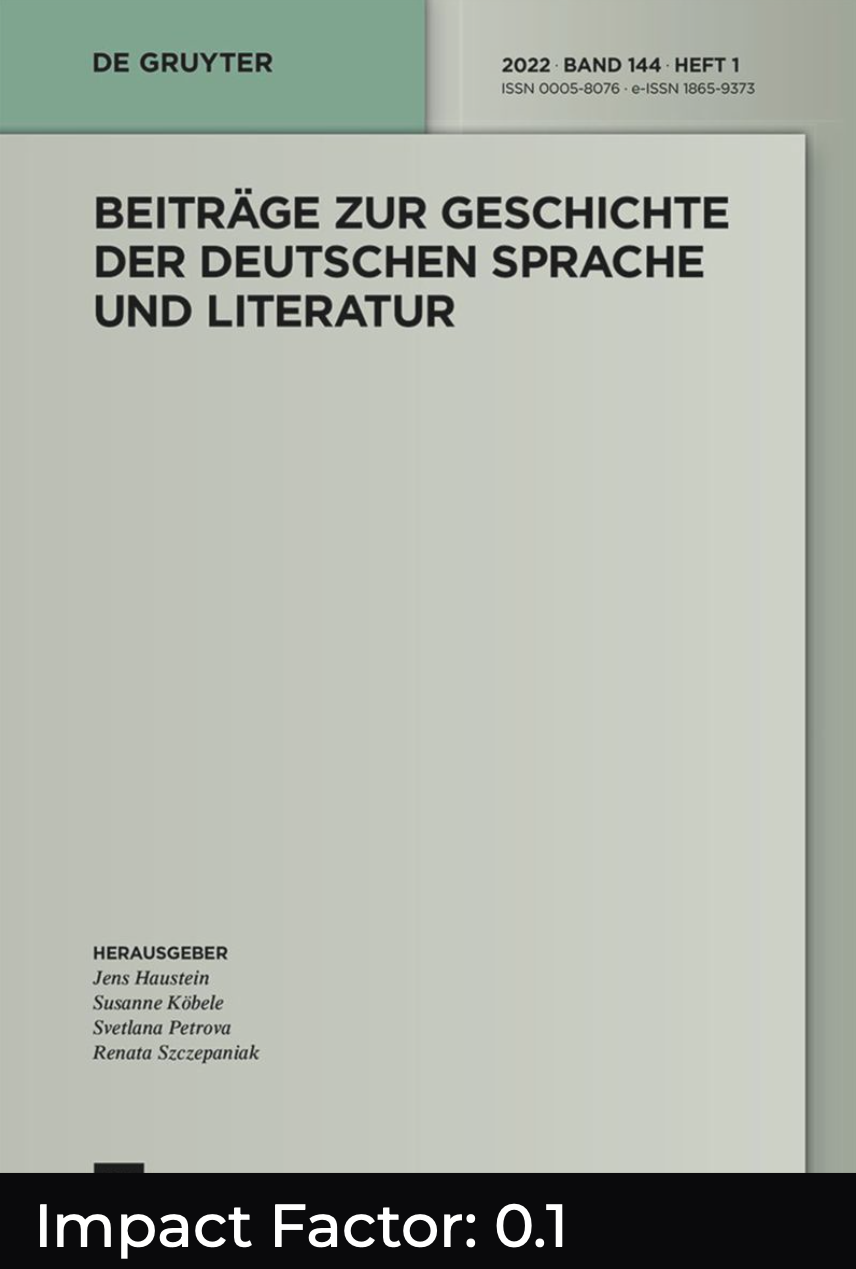 Widerspruch als Erzählprinzip in der Vormoderne? Eine Projektskizze
Widerspruch als Erzählprinzip in der Vormoderne? Eine ProjektskizzeIn premodern narratives contradictions are omnipresent – conflicting concepts, logical inconsistencies, acts of objection. In a narratological perspective ›contradiction‹ – conflicts of incompatible knowledges and narrative patterns; inconsistencies in or between speech (by narrator or characters) and action; contradictory or inconsistent information and motivation – is apt to subvert, complicate, or enrich the textual production of meaning. The project ›Contradiction as a Narrative Principle in Premodern Narrative‹ (University of Bremen) explores different types of contradictions in medieval epic and romance.
-
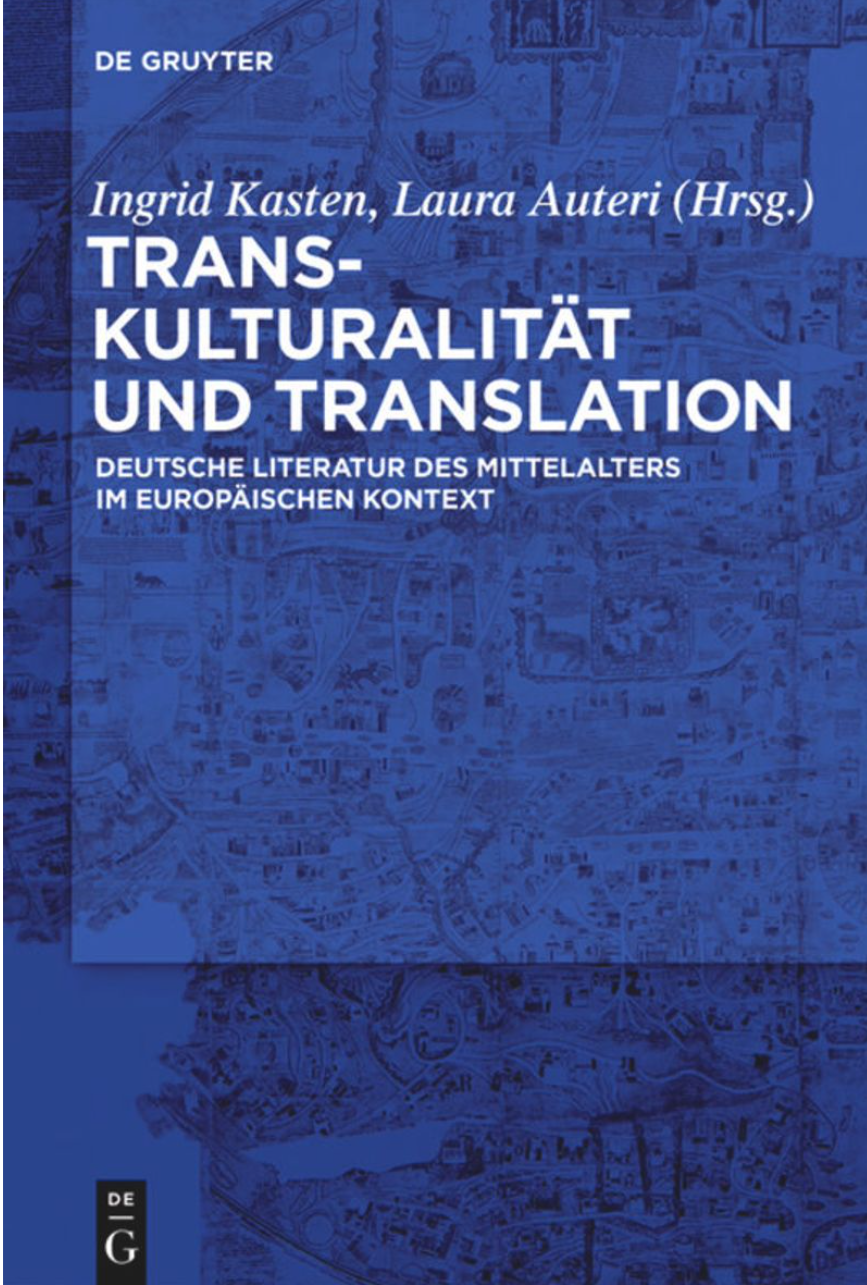 Erzählen in transkultureller Perspektive. Zur Poetologie der Widersprüche in der europäischen Heldendichtung
Erzählen in transkultureller Perspektive. Zur Poetologie der Widersprüche in der europäischen Heldendichtung
-
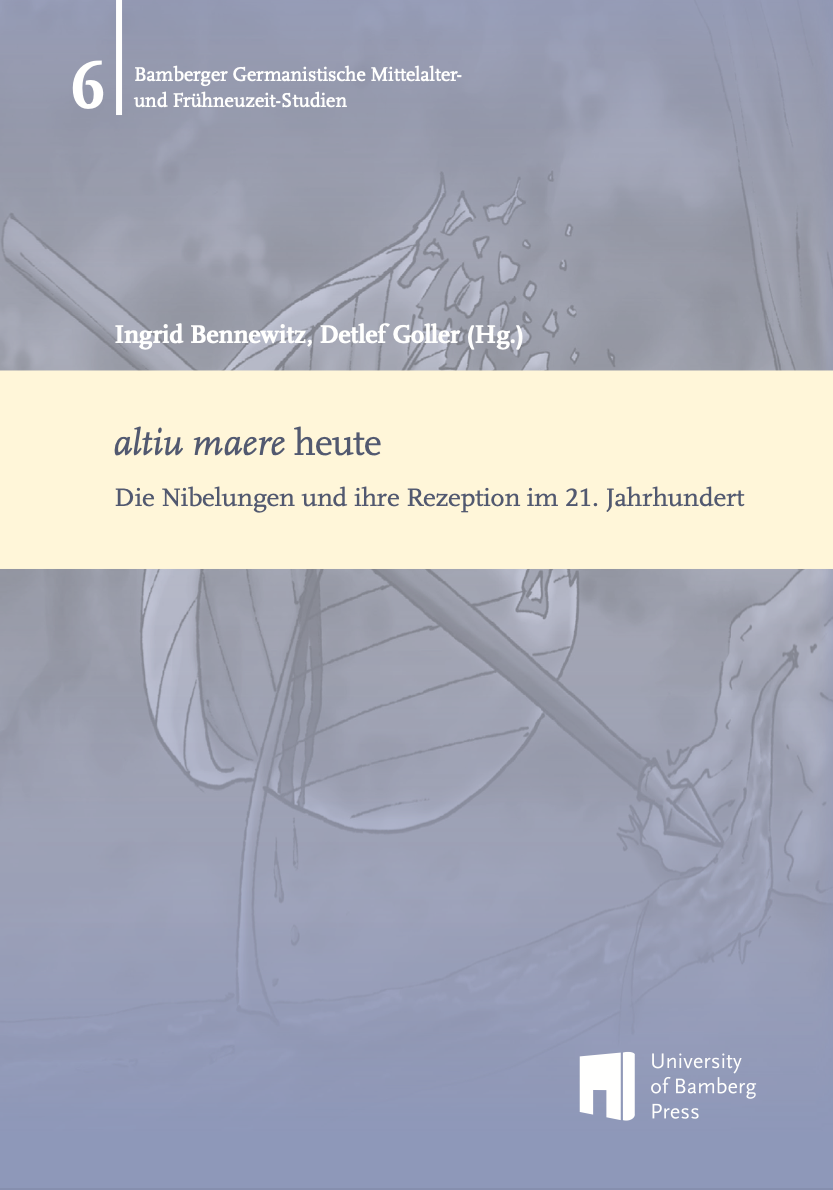 Kriemhild im 21. Jahrhundert. Variationen über eine widersprüchliche Figur
Kriemhild im 21. Jahrhundert. Variationen über eine widersprüchliche Figur
-
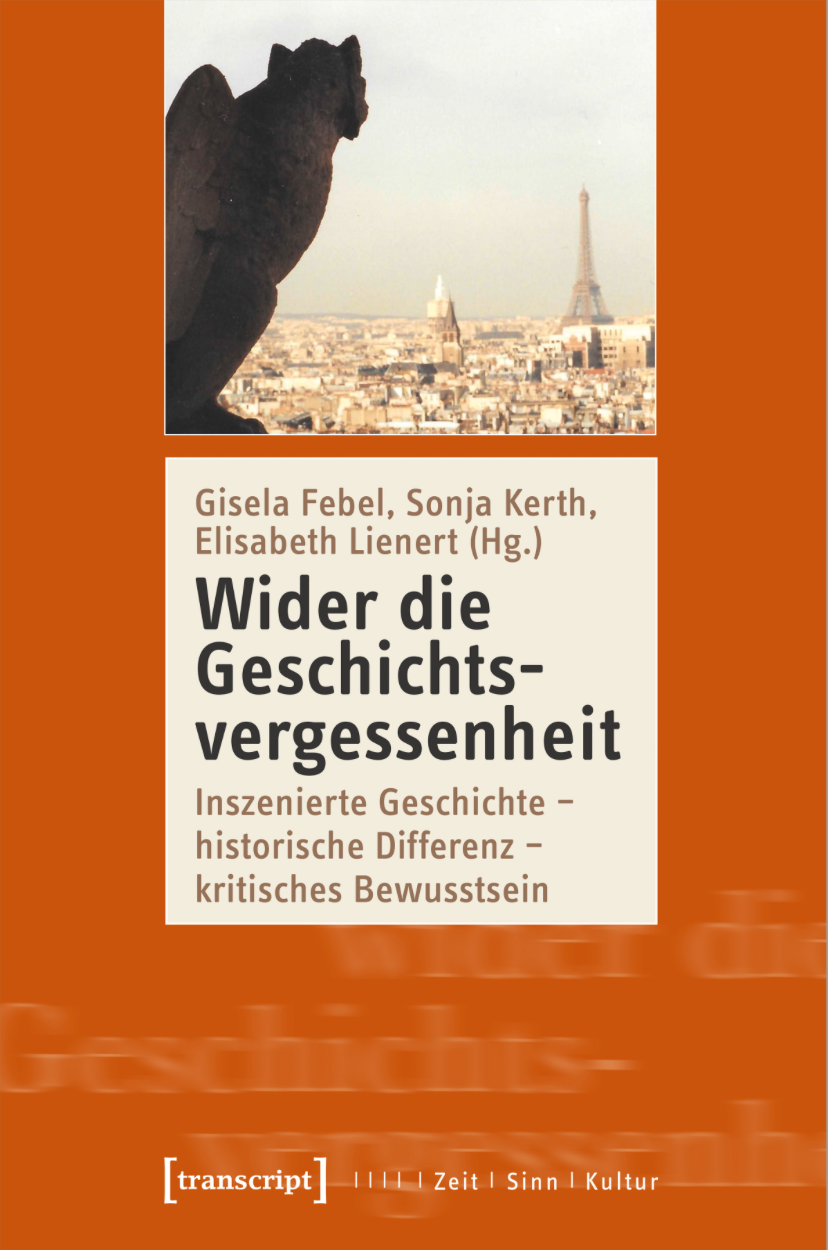 Schichten von Geschichte in aktueller Nibelungenrezeption
Schichten von Geschichte in aktueller Nibelungenrezeption
-
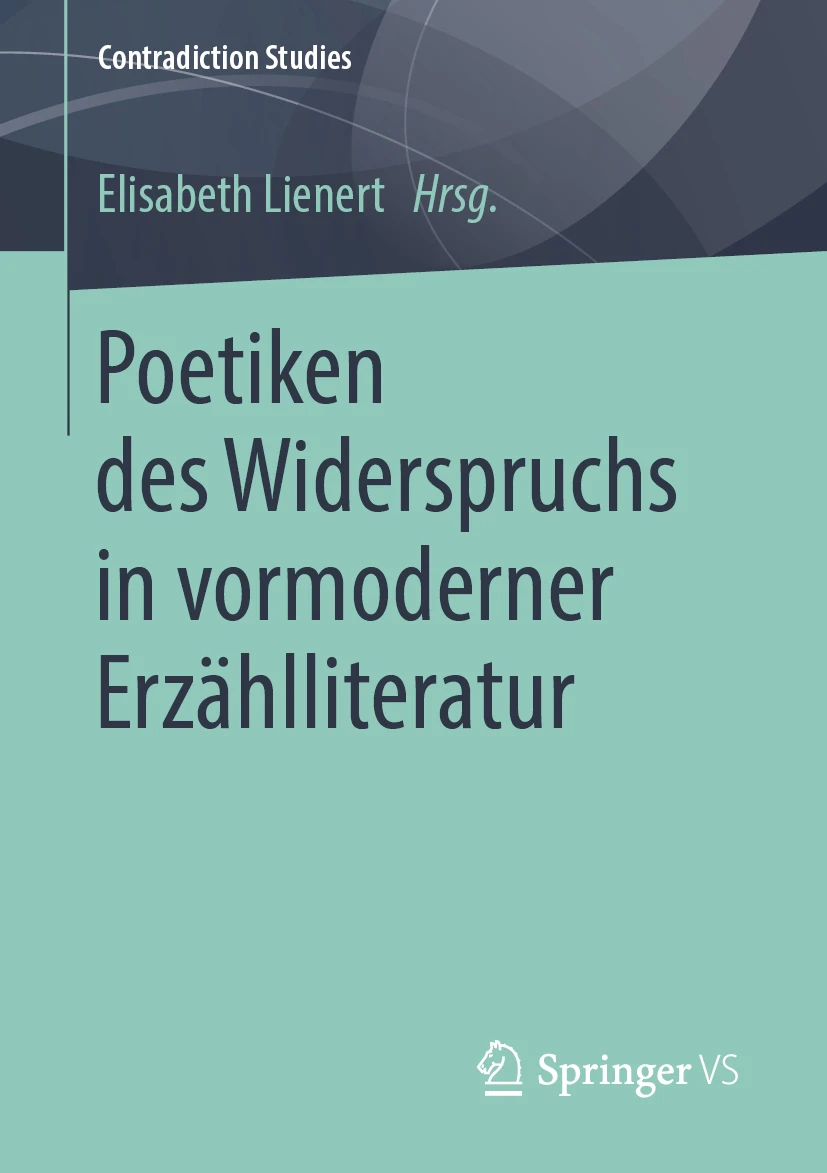 Poetiken des Widerspruchs in vormoderner Erzählliteratur
Poetiken des Widerspruchs in vormoderner ErzählliteraturDieser Band enthält grundsätzliche Überlegungen und textbezogene Fallstudien zu poetologischen Potenzialen von Widersprüchen und Verwandtem in deutschen und europäischen Erzähltexten vom 12. bis zum 17. Jahrhundert. Untersucht werden Akte der Widerrede und Phänomene der Unvereinbarkeit, widersprüchliche Konzeptualisierungen und narratologische Brüche, epistemologische Bedingungen der Wahrnehmung von Widersprüchlichkeit, Aspekte einer Poetologie des Widerspruchs als Mittel der Sinnkomplexion.
-
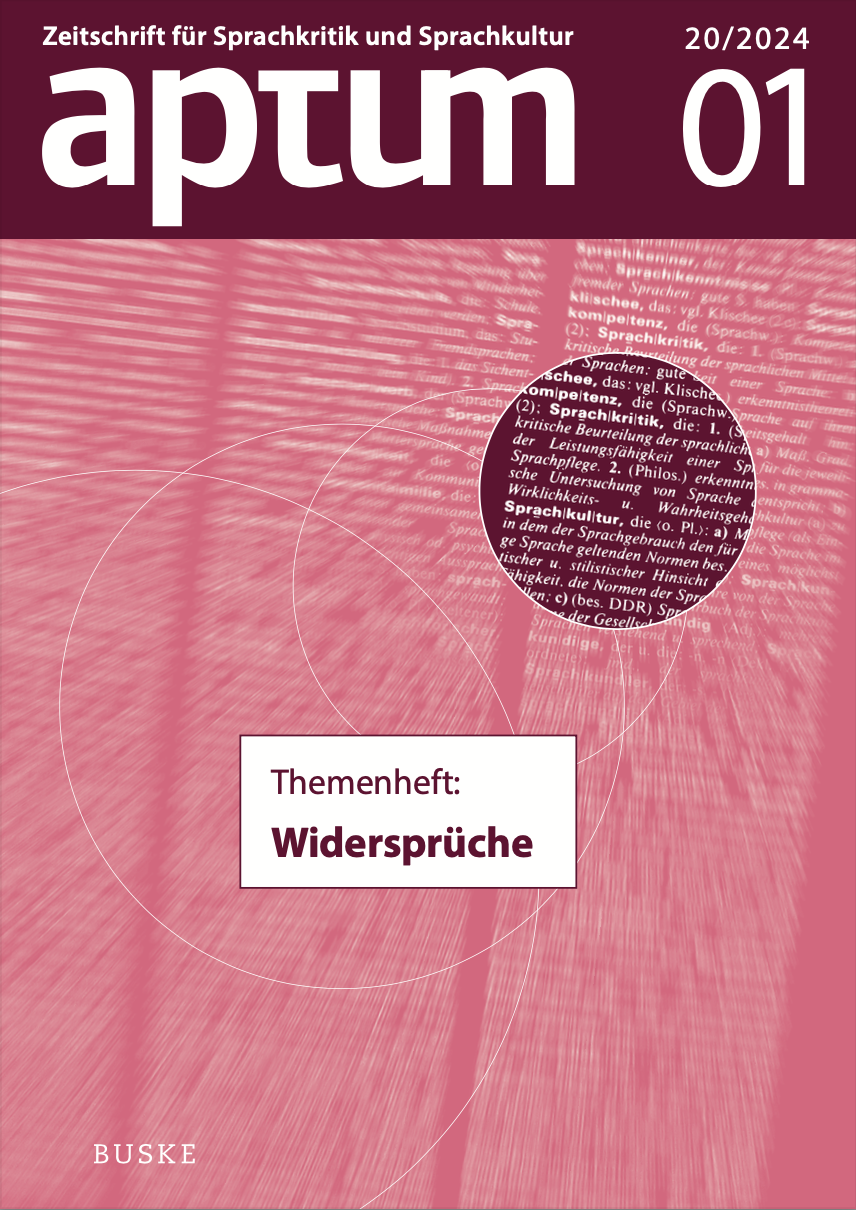 Zur Ästhetik von Widerspruchspraxen am Beispiel des feministischen Abtreibungsdiskurses in den 1970er Jahren
Zur Ästhetik von Widerspruchspraxen am Beispiel des feministischen Abtreibungsdiskurses in den 1970er JahrenIn this article, the proposal is made to analyse practices of contradiction with regard to their aesthetic potential. On the one hand, this is intended to demonstrate the diverse possibilities of contradiction studies and, on the other, to emphasise the role of aesthetic texts in protest discourses. Texts from the feminist abortion discourse will be used as examples.
-
 Disruptive und diskursive Ereignisse. Ein Vorschlag zur Ausdifferenzierung mit Beispielen aus dem feministischen Abtreibungsdiskurs Disruptive und diskursive Ereignisse
Disruptive und diskursive Ereignisse. Ein Vorschlag zur Ausdifferenzierung mit Beispielen aus dem feministischen Abtreibungsdiskurs Disruptive und diskursive EreignisseAgainst the backdrop of the notion of disruption, this article scrutinises cur-rent concepts of discursive events and places them in relation to one another. The disrup-tive events derived from this are understood as a subcategory of discursive event. Using the example of the feminist abortion discourse and by analysing practices of contradiction, it is determined to which extent feminist actors construct the judgements of the Federal Constitutional Court of 1975 and 1993 as disruptive events.
-
 Realismus, Groteske, Ethik des Überlebens in der aktuellen haitianischen gesellschaftskritischen Literatur am Beispiel von Kettly Pierre Mars
Realismus, Groteske, Ethik des Überlebens in der aktuellen haitianischen gesellschaftskritischen Literatur am Beispiel von Kettly Pierre Mars
-
 Geschichtsdenken in historischen Romanen über die Vormoderne
Geschichtsdenken in historischen Romanen über die VormoderneIn the face of growing populism and right-wing radicalism, the fight against historical forgetfulness in thought and action is once again highly topical. At first glance, however, historical forgetfulness – at least in relation to the pre-modern era – hardly seems to exist: The Middle Ages, Renaissance and early modern period are experiencing a boom in novels, dramas and popular media. But here in particular, there is an urgent need for an active response to simplifications, mythifications and falsifications. The contributors to this volume show that it is essential for a critical consciousness to be aware of historical difference and media filters and to reflect on their effects. In the face of growing populism and right-wing radicalism, the fight against historical forgetfulness in thought and action is once again highly topical. At first glance, however, historical forgetfulness – at least in relation to the pre-modern era – hardly seems to exist: The Middle Ages, Renaissance and early modern period are experiencing a boom in novels, dramas and popular media. But here in particular, there is an urgent need for an active response to simplifications, mythifications and falsifications. The contributors to this volume show that it is essential for a critical consciousness to recognize historical difference and media filters and to reflect on their effects.
-
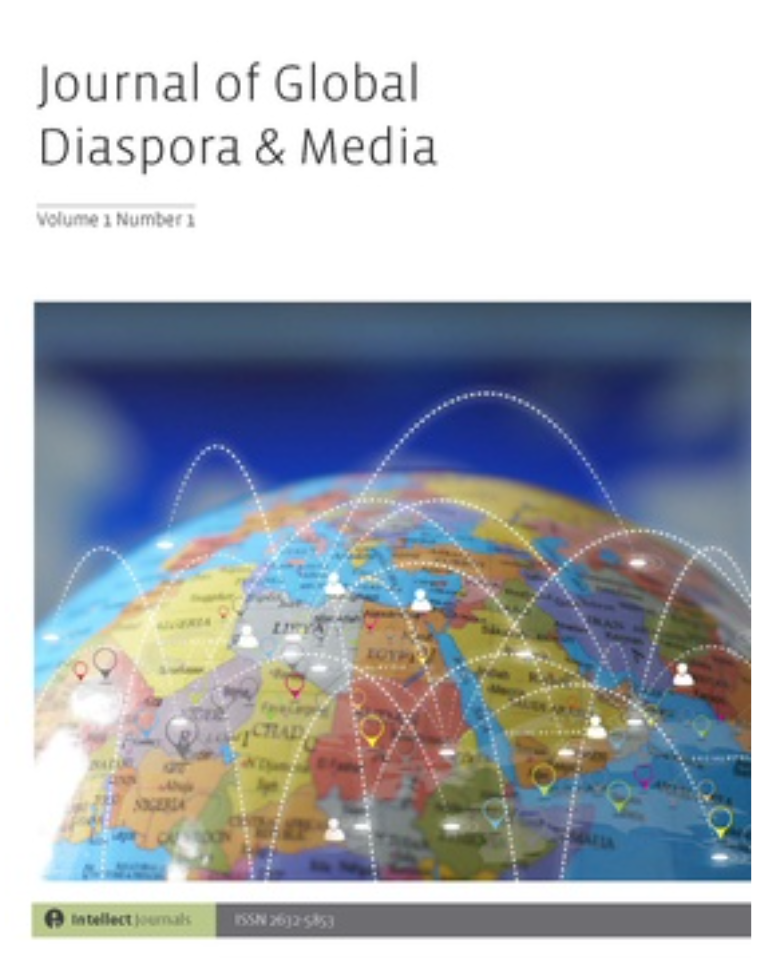 How to Shape Black Diasporic Identity in France by Reading (About) Literature
How to Shape Black Diasporic Identity in France by Reading (About) LiteratureThis article gives an overview of francophone African diasporic websites such as Africultures.com, africavivre.com and other digital magazines, networks and blogs that are present on different platforms. Taking recent novels, texts of liter- ary criticism, reviews and comments as examples, I analyse in what way they share in discourse about diasporic and migratory identity positions of Afropéens (‘Afropeans’) (and differ therein from other readings of the same novels). Methodologically, I draw on Stephen Greenblatt’s concepts of self-fashioning and circulation of social energy as well as on Pierre Bourdieu’s notion of the produc- tion of social capital. With respect to socially preformed discursive formation of Black people as an ostensibly homogeneous minority in the twenty-first century France, I refer to Pap Ndiaye’s ground-breaking study La condition noire from 2009 which closely analyses the complex situation of the Black migrant and post- migrant population. I focus on two narrative texts which are widely perceived both in France and on an international level: First, the autobiographically inspired novel Le Ventre de l’Atlantique (The Belly of the Atlantic) by Fatou Diome and second, Marie Ndiaye’s narrative triptych Trois femmes puissantes (Three Strong Women). Studying remarks and comments of literary criticism concern- ing these texts on francophone African diasporic websites, I raise the following questions: What relevance do these narrated characters (still) have today? To what extent do they shape the discourse of Black migrants in France? What kind of interpretation of the colonial history and context do they offer? And which emancipatory moments and decolonial strategies create a new, proper symbolic capital and, thus, add to the Imagined Community of ‘Noirs en France’ (‘Black people in France’)?
-
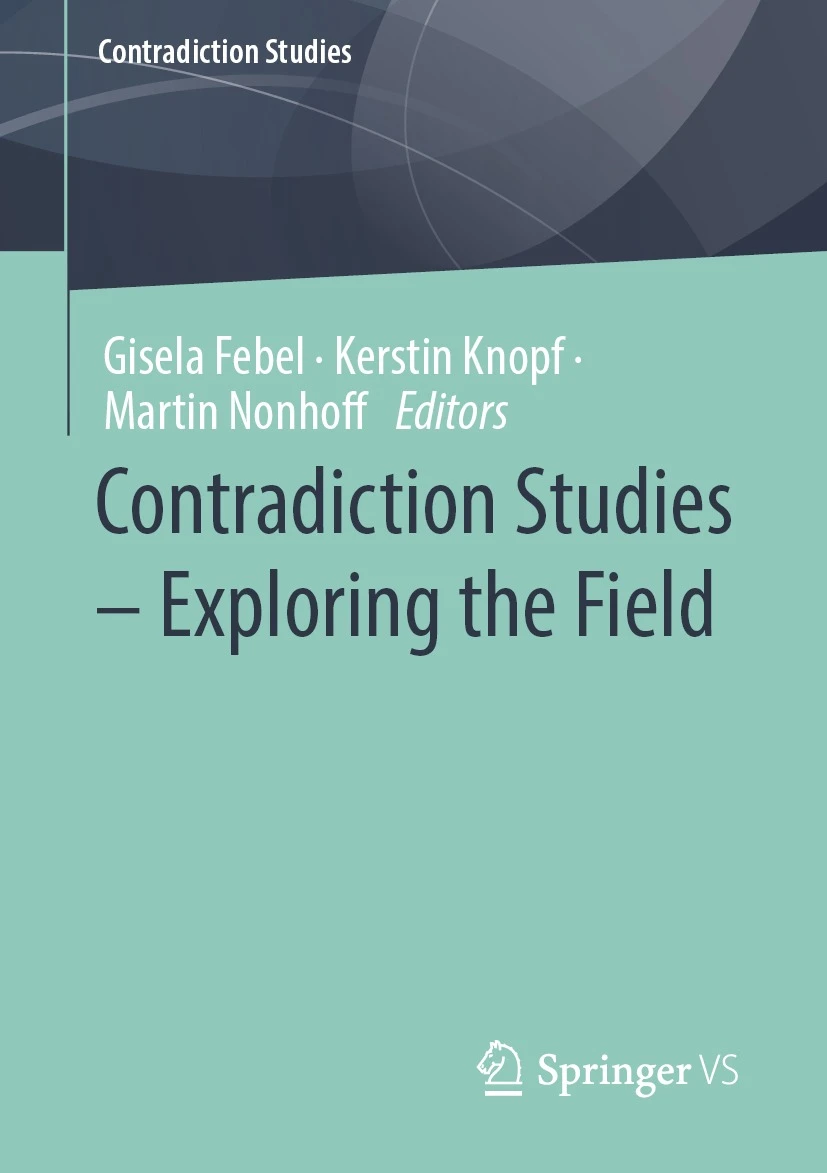 Contradiction Studies – Exploring the Field. An Introduction
Contradiction Studies – Exploring the Field. An IntroductionSince antiquity in Greece, the Law of Non-Contradiction (LNC) is considered to be the foundation of all philosophy. As Aristotle maintains in Metaphysics, “the same attribute cannot at the same time belong and not belong to the same thing and in the same respect” (1005b, 19–23).
-
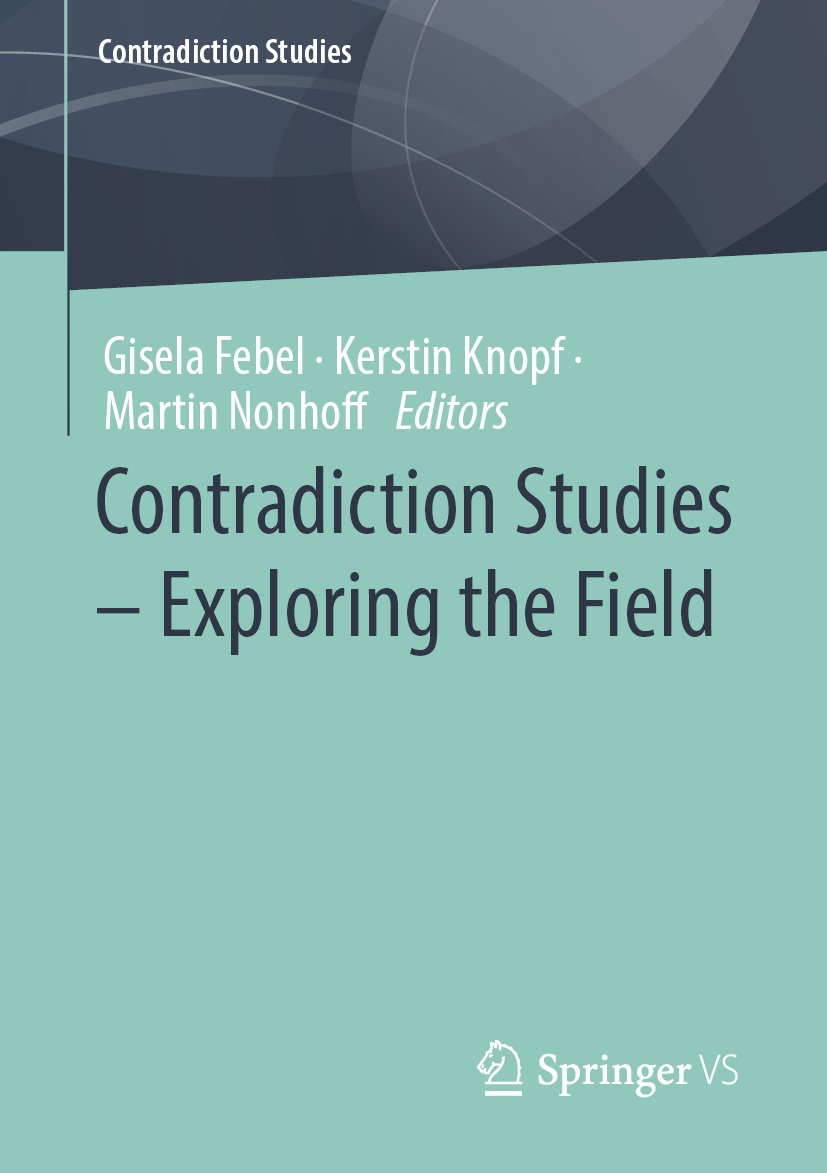 Contradiction Studies – Exploring the Field
Contradiction Studies – Exploring the Field“Contradiction” is a core concept in the humanities and the social sciences. Beside the classical ideas of logical or dialectical contradiction, instances of “lived” contradiction and strategies of coping with it are objects of this study. Contradiction Studies discuss the many ways in which explicit or implicit contradictions are negotiated in different political or cultural settings. This volume collects articles that tackle the concept of contradiction, practices of contradicting and lived contradictions from a number of relevant perspectives and assembles contributions from linguistics, literary studies, philosophy, political science, and media studies.
-
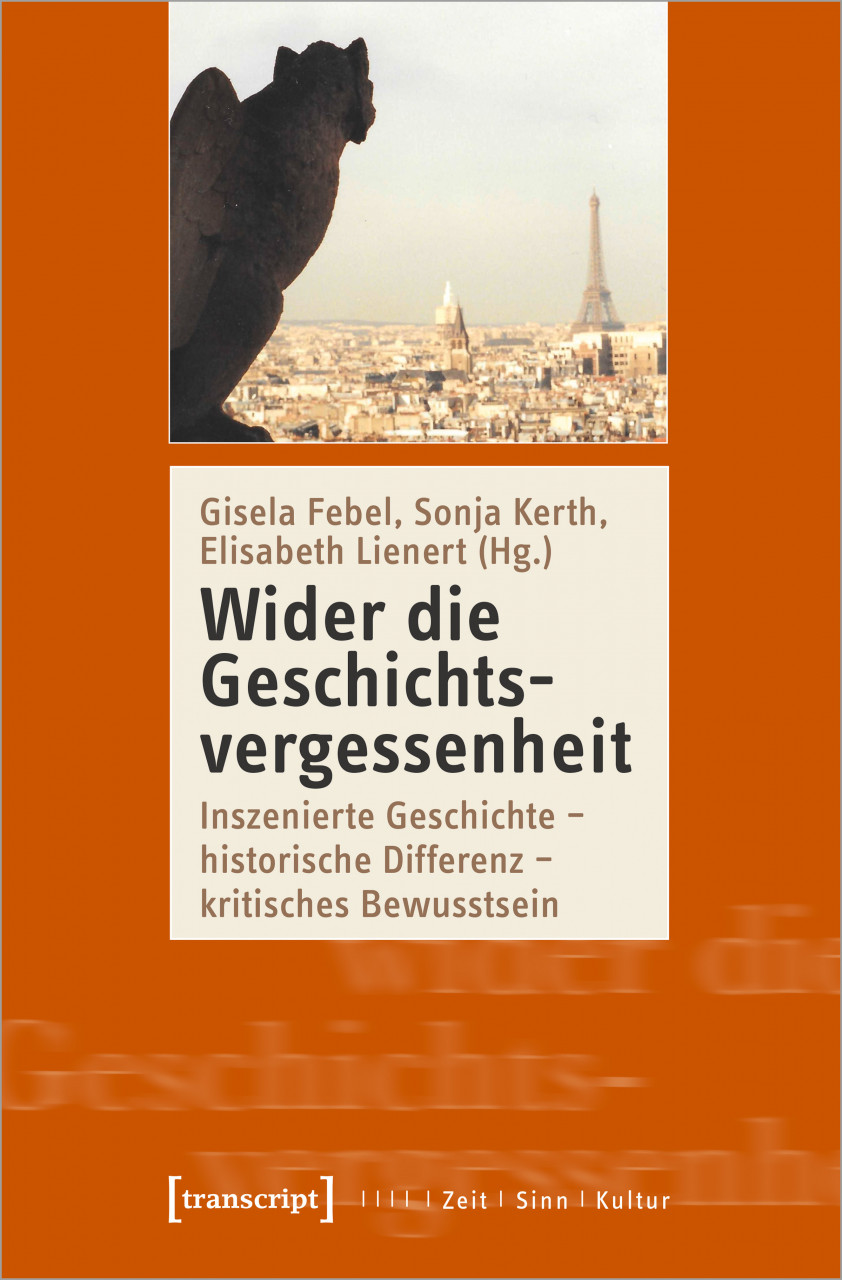 Wider die Geschichtsvergessenheit. Inszenierte Geschichte – historische Differenz – kritisches Bewusstsein
Wider die Geschichtsvergessenheit. Inszenierte Geschichte – historische Differenz – kritisches BewusstseinIn the face of growing populism and right-wing radicalism, the fight against historical forgetfulness in thought and action is once again highly topical. At first glance, however, forgetting history – at least in relation to the pre-modern era – hardly seems to be an issue: The Middle Ages, Renaissance and early modern period are experiencing a boom in novels, dramas and popular media. But here in particular, there is an urgent need for an active response to simplifications, mythifications and falsifications. The contributors to this volume show that it is essential for a critical consciousness to recognize historical difference and media filters and to reflect on their effects.
-
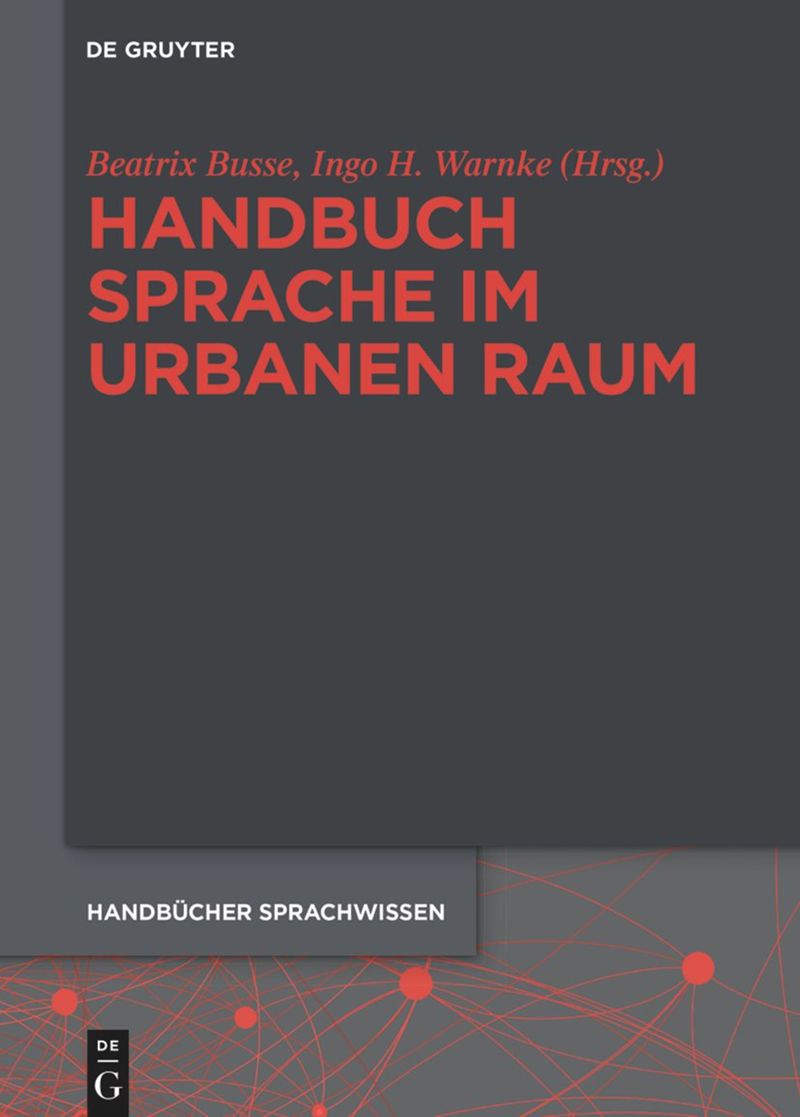 Melancholy Objects Remixed. A Multimodal Counterstatement on Photography in Urban Linguistics
Melancholy Objects Remixed. A Multimodal Counterstatement on Photography in Urban LinguisticsThe chapter discusses the use of photographs in research on Linguistic Landscape. Based on the observation of a widespread use of photographic documentation, the status of photographs is critically reflected. The focus lies on a reading of Susan Sontag’s ([1977] 2014) Melancholy Objects. Here, conceptions of description and documentation are questioned, as they are common for some linguistic works, especially in the field of Urban Studies. Of particular importance is the examination of the tension between realism and surrealism as well as the question of the extraction of reality. The text, which is a remix of Susan Sontag’s ([1977] 2014) thoughts, is complemented by twenty photographs that address the limits of photographic representation in the linguistic text.
© 2022 Walter de Gruyter GmbH, Berlin/Boston
-
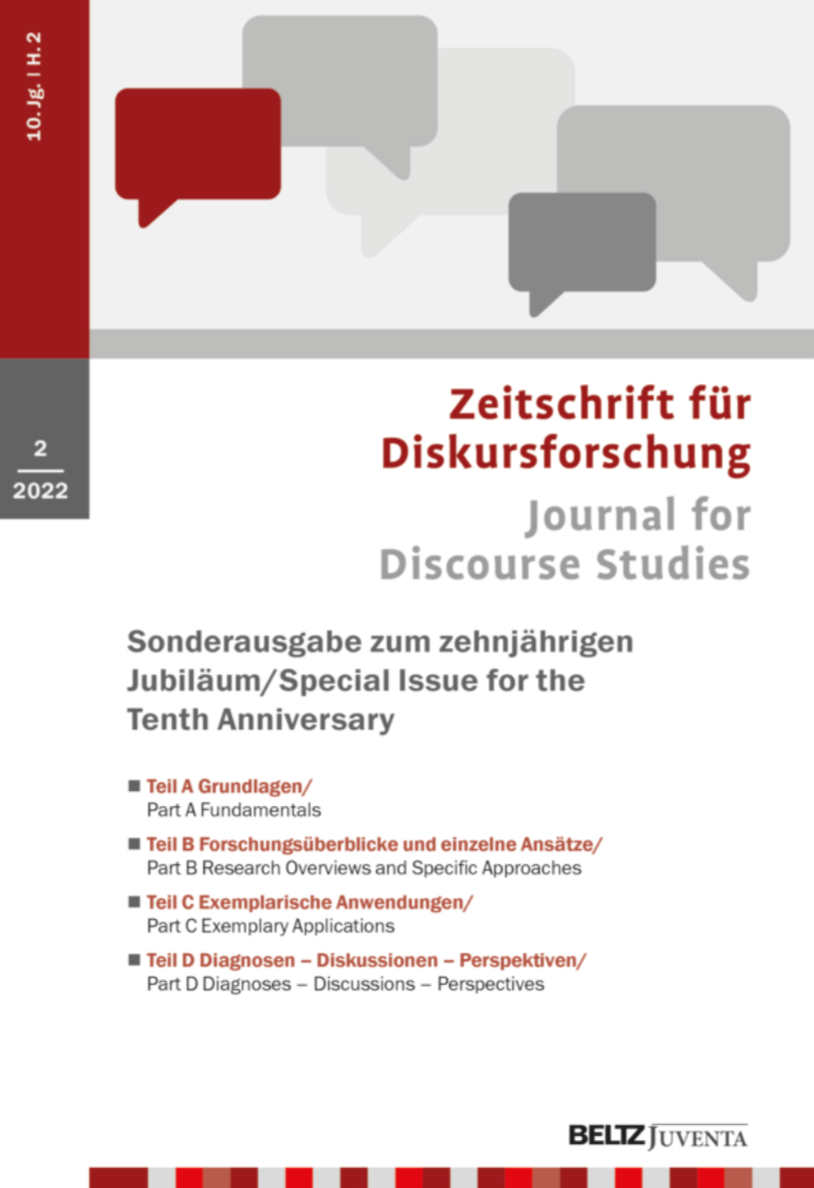 Mythos Zuhören – Bemerkungen zur Diskursphänomenologie gerichteter Aufmerksamkeit
Mythos Zuhören – Bemerkungen zur Diskursphänomenologie gerichteter AufmerksamkeitBased on the omnipresence of euphemistic talk about listening, the essay examines the network of relationships between listening and discourse. A widespread myth, in which listening is understood in isolation as a replicative action and the imponderables of listening are systematically covered up, is contrasted with the assumption that listening is language in contradiction and as such constitutive for discourse and vice versa. The question is about the possibilities of a sociolinguistics of listening and in particular about a conceptual classification of listening in the field of tension between the positivity of speech and the intentionality of listening. I speak of discourse phenomenology, without overlooking the fact that this also breaks up a scientific-historical juxtaposition of discourse analysis and phenomenology.
-
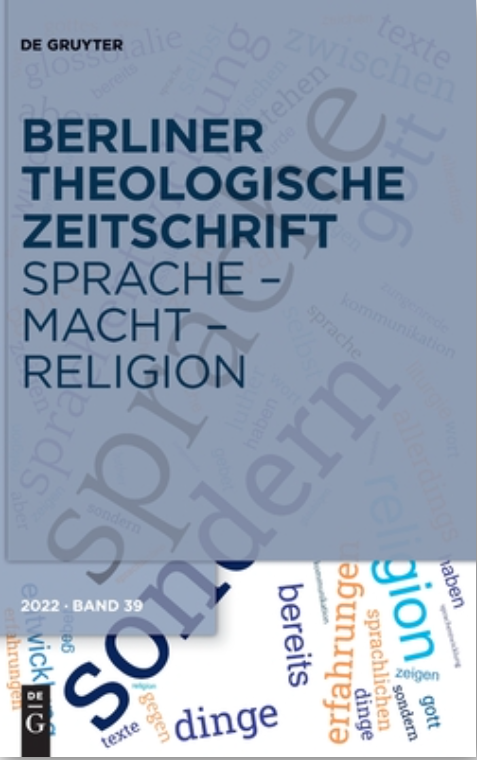 Religion im kolonialen Archiv
Religion im kolonialen Archiv
-
 Diskurs ist Widerspruch
Diskurs ist WiderspruchIntroduction to the special issue Widersprüche.
-
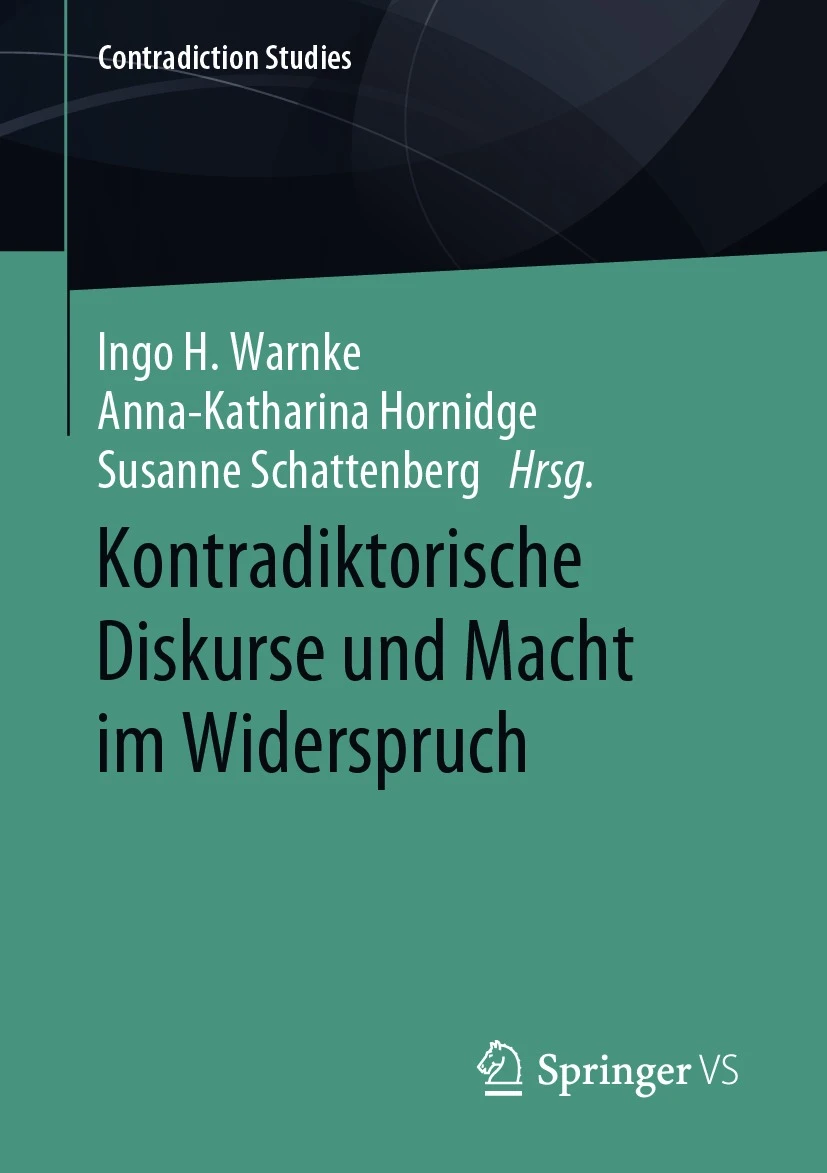 Kontradiktorische Diskurse und Macht im Widerspruch
Kontradiktorische Diskurse und Macht im WiderspruchDer Band behandelt in interdisziplinärer Perspektive Widerspruch unter anderem als einen konzeptionellen Anker von Diskursanalyse und -theorie. Widerspruch ist eine Figur der Ordnung von Wissen und damit Ausdruck von Machtverhältnissen. Akteur*innen, die Widersprüche identifizieren und als solche erst wahrnehmbar machen, sind ebenso in Dynamiken der Widerspruchsdeklaration verwoben wie das, was in einer Zeit als widersprüchlich bestimmt und bezeichnet wird. Die performative Dimension von Widerspruch unter Einschluss des Widersprechens verweist auf historische Normalitätsproduktionen und soziale Hierarchien, in denen das Widersprüchliche stets als Anlass zu seiner Auflösung verstanden wird.